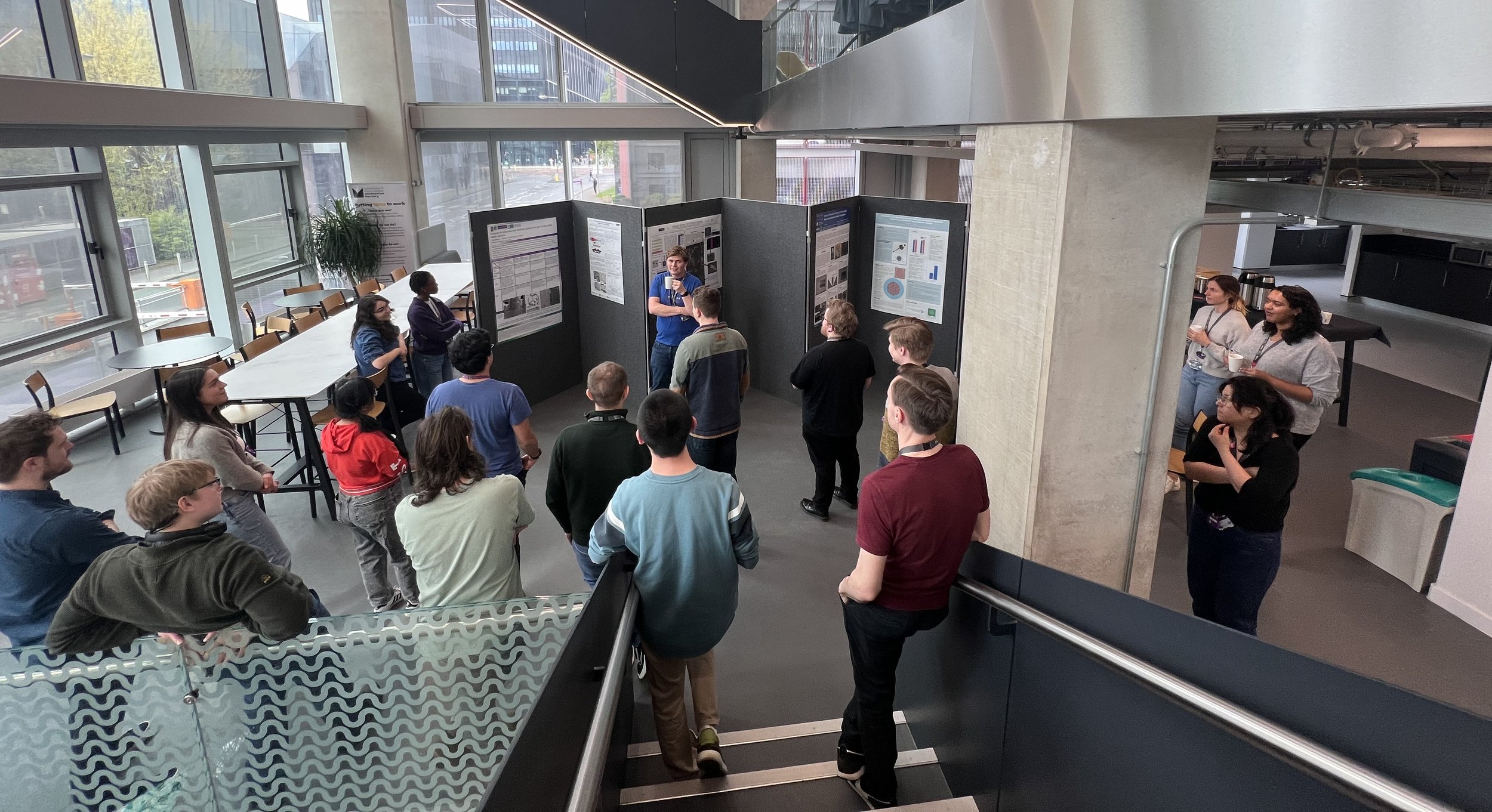Bridging ideas and innovation: a recap of the manchester midas and fuels group poster session
On the 25th of April 2024, the mezzanine floor of the Royce Hub building buzzed with enthusiasm and scientific discourse as 23 attendees from the MIDAS and Fuels group convened for a poster session. This gathering provided a forum for integration and idea exchange, aimed at fostering collaboration between two distinct, yet similar research groups within the department of materials.
The groups listening eagerly to Callum Hunt’s project summary.
The session showcased a variety of posters, each representing a unique project spearheaded by our researchers. From the novel method for light element detection in Scanning Transmission Electron Microscopy (STEM) to the study of thermal conductivity of ion irradiated Silicon Carbide materials, the diversity of research topics underscored the depth and breadth of expertise within the teams.
This event served as a platform for researchers to summarise their ongoing projects and engage in a constructive dialogue with their peers. Questions flowed freely, sparking discussions that extended beyond the formal presentations. This interactive environment enhanced understanding and created potential for collaborative endeavours.
PDRAS and PhDs each gave a 3 minute thesis style presentation to the group
The importance of such sessions in an academic setting cannot be overstated. They break down the silos that often exist within and between departments, allowing for an interaction of ideas that is essential for innovative research. Furthermore, these gatherings provide a stage for researchers to articulate their work to a broader audience, refine their communication skills, gain new perspectives on their research and learn about related studies.
Researchers discussing their projects
Attendees were more connected to their peers, better informed about parallel research tracks, and inspired by the collaborative potential their collective expertise could harness. The informal interactions, enriched with refreshments, further paved the way for building stronger professional relationships and mutual respect among the participants.
The success of this poster session serves as a cornerstone in the edifice of academic development. Future collaborations could potentially include joint research projects, co-authored publications, and more such knowledge-sharing events, each adding layers of value to the academic and practical contributions of our researchers, while contributing significantly to the global scientific community.
Delighted participants at the end of the session following their exposure to scientific knowledge!
In conclusion, the poster session for MIDAS and the Fuels group was not just an academic exercise but a vital step towards building a cohesive research community. The insights shared and connections made during this event have set a solid foundation for future collaborations, driving innovation and discovery in exciting new directions.




